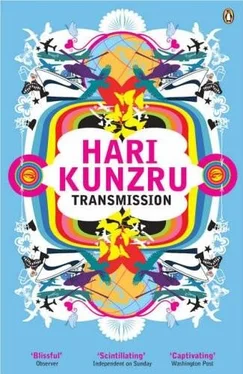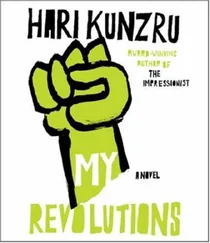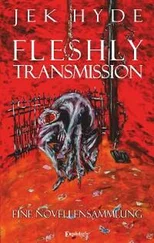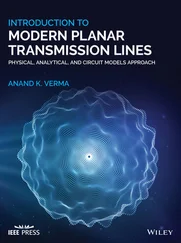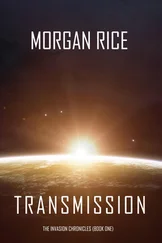‘Happy birthday for yesterday,’ said Gaby. Leela shot her a suspicious look.
‘How did you know?’
‘They brought me up here to work on the film.’
‘Doing what?’
‘Public relations. You probably know about all the journalists.’
Leela nodded and jerked her chin at the castle.
‘And they want to know why I’m not over there, running up and down on the roof.’
‘That’s more or less it. That and the computer virus.’
Suddenly Leela reached out and clutched Gaby’s wrist. Her grip was surprisingly strong.
‘Are they bringing my mother here?’
‘I don’t know. Why? Do you want her to come?’
‘No!’ She half spat. ‘She will, though. As soon as they tell her their precious film is in trouble, she’ll come here.’
Gaby recoiled. Leela let go of her arm and looked back out across the loch. ‘It must be so cold,’ she said, thoughtfully. Then she picked her way forward over the rocks. Gaby thought she would stop there, but she carried on, taking several paces out into the water. Her nightdress billowed round her knees. Alarmed, Gaby started after her.
Leela laughed. ‘So cold!’ She lost her balance for a moment and stretched out her arms to right herself. There was a little flash of gold in the water. ‘Drat, I dropped my smokes.’
‘Come back,’ pleaded Gaby. She had an idea that Leela was about to go further, that she would walk out until she vanished under the surface. Instead she turned and sloshed back to the shore. When she made it back on to the spongy surface of the lawn, she suddenly danced a few steps, curling her outstretched arms in a sinuous movement as she hummed a snatch of a song.
‘I learned the number,’ she said. ‘I did that for them, at least.’
‘You must be freezing,’ said Gaby. The girl’s dripping nightdress was plastered to her legs. ‘Maybe we should go back inside.’
‘They’re all bastards, you know.’
‘Who are?’
Leela waved at the hotel. ‘All of them. They don’t give a fig about anything but their super-duper careers. They certainly don’t care about me.’
Gaby did not know what to say. Leela shivered and rubbed her hands. ‘Well,’ she said, ‘I’m going to bed now. They have MTV here. Do you like MTV?’ Gaby shrugged. ‘I do. You can watch other people dancing routines instead of having to do them yourself.’ She gave a half-hearted little laugh, as if to underline that she was making a joke. How young she is, thought Gaby, with her awkward play-smoking and her nursery language. Drat and fig. More like twelve than twenty-one.
Leela took a few paces across the lawn, then turned back.
‘Could you do a favour for me?’
‘Sure.’
‘Don’t tell them you saw me.’
‘Of course.’
Gaby watched her tramp over the grass and disappear into the building. She was left alone, cloaked in a silence that was frayed at the edges by the sound of the water lapping at her feet.

As Leela02 died down and samples of Leela09 started to hit the Virugenix GSP, June temperature records were broken in several places around the world. There were a few spectacular events — the suspension of the Bolsa de Valores in Lima, the Olympic ticketing fiasco — but on the whole the effect was cumulative, an accretion of frustration, a furring of the global arteries. Simple tasks took on new levels of difficulty. You wanted to book a railway ticket, but the site was down. The social-security department was unable to process your claim. Your new TV was redirected to the crackheads downstairs, but the company’s records said you signed for it so, sir, you must have got it. Breakdowns, closures, suspensions and delays, all taking place in the sweltering heat. New York City ran out of electric fans, but whether it was simply the spike in demand or the container truck that somehow went missing on the New Jersey Turnpike, no one could say with certainty.
Over the Desert Creek Golf Course in Dubai, tall steel poles tipped with fanned arrays of nozzles sprayed a fine mist of humidity into the air. From the ground came a regular thumping sound, the chug chug of 8,000sprinklers irrigating 200 acres of dwarf Bermuda grass, a solid mat of vivid paintbox-green like a mould on the red skin of the desert. Beneath it, veins and arteries, ran miles of plastic tubing, connecting the green mat to a site down the coast where a vast desalination plant boiled Arabian Gulf seawater to a thousand degrees centigrade, filtered it and daily pumped two and a half million gallons of it here, for the grass and the golfers.
Like all golf courses, the landscape was a ghost of Scotland, an environmental memory abstracted into universal signs. Bunker, fairway, rough. To this the poles, defoliated silver birches, added the suggestion of forest. At one side, this virtuality peeled away to reveal artful vistas of the sea. At the other, it rose up in a lip to shield itself from the wind-blown sand of the dunes.
Under his sun visor, Guy felt immensely disoriented.
Abdullah was driving the golf cart like he drove his Lexus, bouncing it across the bright green landscape with maniacal intensity. The cart’s little electric engine gave off an angry whine. Guy held on tighter to his laptop.
As soon as he had landed at the airport and met Abdullah, he had known it was going to be a difficult pitch. His contact was standing beneath a Dubai development-agency billboard: Move your company to the gateway of the globe. 1.5 billion consumers await you at your arrival. A business base with a first-world infrastructure — at a third-world cost. He was a young fuzzy-cheeked man wearing a black-banded headdress and a white dish-dash from beneath which peeked the toes of a pair of hand-made penny loafers. Grinning under the lenses of his oil-slick Ray-Ban Wayfarers, he finished his call. Then he slipped the phone back into a voluminous pocket and told Guy he was welcome in Dubai and please to follow to the car. He did not offer to help with the bags.
As they left the terminal building, the heat hit Guy like a solid object. Sweat started to percolate up through his skin, trickling down his back under his shirt. Abdullah led him across the car park to a barn-sized black car. In a gesture of politeness, he turned up its air-con to Arctic levels and with a screech of tyres turned out on to an eight-lane blacktop highway that seemed to lead to nowhere.
‘Nice weather we’re having,’ he said cryptically. The thermometer on the dash put the outside temperature at 41 °C. Out of the window an expanse of red sand flashed past. There were almost no cars on the road, but Abdullah deliberately tailgated those there were. By the time the speedometer touched 155k.p.h. they were a foot behind a 4 x 4 with an ‘I ♥ Islam’ sticker in the rear window. Abdullah punched the horn and flashed his lights until it pulled over.
‘You should be a rally driver,’ Guy joked nervously.
‘This is already my hobby. For two years I am driving desert races. It is good, except I crash too much.’
To take his mind off this answer, Guy peered through the grey tint of the windscreen. In the distance a city skyline was approaching and soon half-built skyscrapers started to appear at the roadside, their skeletons criss-crossed by plastic lines hung with the drying dhotis of Indian labourers. Construction was taking place all over the city, and the architectural thrust appeared to be towards the creation of some kind of Islamic Las Vegas. There were huge bank towers incorporating pointed arches and minarets, thirty-storey office blocks faced in green-and-gold smoked glass like giant onyx writing sets. One building appeared to be topped with a gargantuan dimpled golf ball. Another had a portico shaped like the front of a 747. The whole insane mess rose up out of the sand like a mirage, and even once he was among it Guy had a lingering sense of disbelief Here was the future, arriving at mouse-click velocity, CAD/CAM sketches cloaking themselves in concrete and steel before his eyes.
Читать дальше
